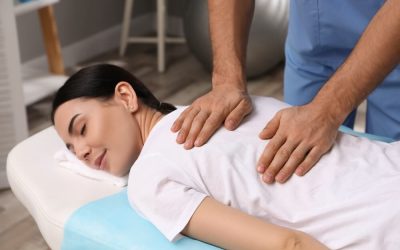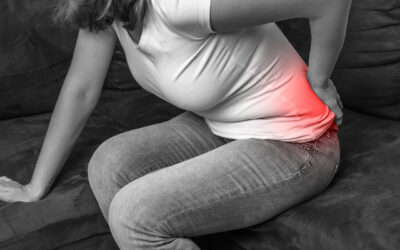Are you tired of the persistent discomfort and limitations caused by TMJ? Are you struggling to find a lasting solution? In this in-depth exploration, we’ll unveil how to cure TMJ permanently. From simple lifestyle adjustments to cutting-edge therapeutic interventions, embark on a journey towards sustained relief and reclaiming control over your jaw health.
Understanding TMJ: Causes and Symptoms
Understanding TMJ, or temporomandibular joint disorder, is crucial for managing jaw pain effectively. This condition arises from various factors, including:
- Teeth grinding (bruxism): Bruxism, the habit of grinding or clenching teeth, can exert excessive pressure on the jaw joint, leading to TMJ discomfort. This repetitive motion strains the muscles and joints, contributing to inflammation and pain.
- Jaw trauma: Trauma to the jaw, such as a direct blow or injury from accidents, can damage the temporomandibular joint or surrounding structures, resulting in TMJ symptoms. Fractures, dislocations, or soft tissue injuries can disrupt the normal function of the jaw, causing pain and restricted movement.
- Misaligned teeth: Misaligned teeth or an improper bite alignment can affect the jaw’s functions, leading to TMJ issues. When teeth do not fit together correctly, it can create imbalances in the jaw muscles and joints, resulting in pain and discomfort over time.
- Stress: Stress can manifest physically as jaw clenching or tightening of facial muscles, exacerbating TMJ symptoms. Sustained stress can result in jaw muscle tension, adding to discomfort, rigidity, and hindered jaw mobility.
Recognizing these underlying causes is essential for implementing targeted treatment strategies. Symptoms of TMJ encompass:
- Jaw pain: TMJ often presents with pain or tenderness in the jaw joint area, which may worsen with chewing, speaking, or yawning. The pain varies from dull and achy to sharp and stabbing, contingent on the condition’s severity.
- Difficulty chewing: Individuals with TMJ may experience difficulty or discomfort when chewing or biting down due to pain or limited jaw movement. This may affect their capacity to consume specific foods, prompting alterations in diet or avoidance of particular textures.
- Headaches: TMJ-related headaches are common and may be felt in the temples, forehead, or behind the eyes. The headaches can persist and intensify with jaw movement or stress.
- Neck pain: TMJ dysfunction can cause referred pain to the neck and shoulders, as the jaw and neck muscles are interconnected. Tension in the jaw muscles can radiate to the surrounding areas, resulting in stiffness and discomfort.
- Jaw locking or clicking: Individuals with TMJ may encounter jaw locking or clicking, indicating possible joint dysfunction or disc displacement. Jaw may temporarily seize or emit popping sounds during mouth movements.
How to Cure TMJ Permanently
Curing TMJ permanently typically involves a multifaceted approach tailored to individual needs. Here’s a general outline of strategies that may help cure TMJ disorder permanently:
- Professional Evaluation: Start by consulting with a healthcare provider, such as a dentist, oral surgeon, or TMJ specialist, for a comprehensive evaluation of your condition. They can assess your symptoms, identify contributing factors, and recommend appropriate treatment options.
- Lifestyle Modifications: Implement lifestyle changes to reduce stress and minimize strain on the jaw joint. This may include practicing stress management techniques, adopting a soft diet, avoiding habits like nail-biting or gum-chewing, and maintaining proper posture.
- Home Remedies and Self-Care: Incorporate home remedies and self-care techniques into your daily routine to alleviate symptoms. This may involve using moist heat or ice packs for pain relief, performing gentle jaw exercises, and practicing relaxation techniques.
- Professional Treatments: Consider professional interventions like dental splints or mouth guards, physical therapy, trigger point injections, and Botox injections. Also, explore orthodontic treatment or surgical intervention, relying on the severity and underlying cause of your temporomandibular disorder.
- Alternative Therapies: Consider alternative therapies and complementary approaches like acupuncture, chiropractic care, massage therapy, herbal remedies, mind-body practices, and nutritional therapy to supplement traditional treatments and enhance overall well-being.
Lifestyle Changes for TMJ Relief

In addressing TMJ discomfort, lifestyle adjustments offer a proactive approach to managing symptoms effectively. Individuals can alleviate jaw pain and enhance overall well-being by incorporating specific changes into daily routines.
Stress Management Techniques
Stress is a common exacerbating factor for TMJ symptoms. Relaxation methods including deep breathing, meditation, or yoga can diminish jaw muscle tension and ease TMJ-linked discomfort.
Soft Diet
Opting for a soft diet can minimize strain on the jaw joint, relieving pain during mealtime. Incorporating easy-to-chew foods, such as mashed vegetables, soups, or smoothies, can help reduce jaw discomfort and promote healing.
Night Guard Use
A night guard while sleeping can prevent teeth grinding, a common contributor to TMJ issues. This custom-fitted oral appliance helps to cushion the teeth and alleviate pressure on the jaw joint, promoting relaxation and preventing further damage.
Posture Improvement
Proper posture throughout the day can alleviate strain on the jaw muscles and joints. Sitting and standing with the spine aligned and the shoulders relaxed can help reduce tension in the neck, lower jaw, and area, minimizing TMJ-related pain.
Avoidance of Habits
Certain habits, such as nail-biting or excessive chewing gum over-chewing, can exacerbate TMJ symptoms. By deliberately refraining from these habits, individuals can mitigate undue stress on the jaw muscles and joints, facilitating recovery and minimizing discomfort.
Home Remedies and Self-Care Techniques

Exploring home remedies and self-care techniques provides a proactive approach to managing TMJ discomfort. By implementing these strategies into daily routines, individuals can effectively alleviate jaw pain and improve their overall well-being.
Moist Heat Therapy
Applying moist heat to the jaw area can help relax tense muscles and alleviate TMJ-related pain. A warm towel or a heat pack can be applied to the jaw for 15-20 minutes daily.
Ice Pack Therapy
Alternating between moist heat and ice pack therapy can help reduce inflammation and relieve TMJ symptoms. Applying a cloth-wrapped ice pack to the jaw for 10-15 minutes can numb the area and treat swelling.
Gentle Jaw Exercises
Performing gentle jaw exercises can help improve jaw mobility and reduce muscle tension. This may include simple movements such as opening and closing the mouth, side-to-side jaw movements, and gently massaging the jaw muscles.
Relaxation Techniques
Practicing deep breathing exercises, meditation, or progressive muscle relaxation can relieve tension in the jaw muscles and ease TMJ-related discomfort. Effective stress management is crucial for alleviating TMJ symptoms.
Dietary Changes
Refraining from hard or chewy foods that can exacerbate TMJ symptoms and opting for softer, easier-to-chew options can help minimize strain on the jaw joint and reduce TMJ pain during mealtime.
Over-the-Counter Pain Relief
Non-prescription painkillers like ibuprofen or acetaminophen can aid in easing TMJ-linked pain and discomfort. Yet, it’s crucial to adhere strictly to the advised dosage and seek medical advice if pain endures.
Professional Treatments for Long-Term Relief
Seeking professional treatments offers a comprehensive approach to achieving long-term relief from TMJ discomfort. With healthcare professionals’ guidance, individuals can explore advanced interventions tailored to their specific needs, aiming for sustained improvement in jaw health.
Dental Splints or Mouth Guards
Dentists can fabricate custom-made dental splints or mouth guards to help alleviate TMJ symptoms. These oral appliances reduce teeth grinding, prevent jaw clenching, and support the jaw joint, promoting relaxation and reducing pain.
Physical Therapy
Physical therapists specialize in techniques to improve jaw mobility, strengthen supporting muscles, and alleviate TMJ-related chronic pain. Through exercises, manual therapy, and modalities such as ultrasound or electrical stimulation, physical therapy aims to restore optimal function to the jaw joint and surrounding structures.
Trigger Point Injections
In cases of severe pain, muscle tension, or spasms contributing to TMJ discomfort, healthcare providers may recommend trigger point injections. These injections deliver medication directly into the affected muscles to alleviate pain and reduce muscle tension, relieving TMJ symptoms.
Botox Injections
Botox injections can help relax the muscles responsible for jaw clenching and teeth grinding, relieving TMJ-related pain. By temporarily paralyzing specific muscles, Botox injections can reduce muscle tension and alleviate symptoms, offering long-term relief for some individuals.
Orthodontic Treatment
Orthodontic treatment may be recommended for individuals with TMJ issues related to misaligned teeth or bite problems. Orthodontists can use braces, aligners, or other orthodontic appliances to correct bite and jaw alignment and improve jaw function, addressing the underlying cause of TMJ discomfort.
Surgical Intervention
In severe cases of TMJ dysfunction that do not respond to nonintrusive treatments, surgical intervention may be necessary. Procedures such as arthrocentesis, arthroscopy, or open joint surgery can address structural abnormalities, repair damaged tissues, and reinstate normal function to the jaw joint, providing long-term relief from TMJ symptoms.
Alternative Therapies and Complementary Approaches

Exploring alternative TMJ treatments and complementary approaches offers individuals additional options for managing TMJ discomfort. When used in conjunction with traditional treatments, these methods can provide holistic support and potentially enhance overall well-being.
Acupuncture: Acupuncture entails inserting thin needles into precise points on the body to stimulate energy flow and facilitate healing. Some individuals find acupuncture helpful in reducing TMJ-related pain and muscle tension, though more research is needed to understand its effectiveness fully.
Chiropractic Care: Chiropractors specialize in spinal manipulation techniques to realign the spine and alleviate musculoskeletal issues. Although chiropractic care may not directly address the jaw joint, it can enhance overall posture and alleviate tension in the neck and shoulders, indirectly benefiting TMJ symptoms.
Massage Therapy: Massage therapy aims to manipulate soft tissues to alleviate muscle tension and induce relaxation. Therapeutic massage techniques to the jaw, neck, and shoulders can help reduce TMJ-related pain and improve jaw mobility by releasing tight muscles and increasing blood flow.
In conclusion, finding a permanent cure for TMJ is essential for reclaiming comfort and freedom from jaw pain. Through lifestyle modifications, home remedies, professional interventions, and preventive measures, you can effectively mitigate and alleviate TMJ symptoms, leading to sustained relief and enhanced quality of life.
References
TMJ disorders – Diagnosis and treatment
https://www.mayoclinic.org/diseases-conditions/tmj/diagnosis-treatment/drc-20350945
TMJ Disorders: Symptoms, Causes & Treatment
https://my.clevelandclinic.org/health/diseases/15066-temporomandibular-disorders-tmd-overview
TMJ Disorder: Symptoms, Causes, and Treatment Options
https://www.webmd.com/oral-health/temporomandibular-disorders-tmd
temporomandibular joint (TMJ) disorders – Healthline
https://www.healthline.com/health/tmj-disorders
TMD (Temporomandibular Disorders)
https://www.nidcr.nih.gov/health-info/tmd






























0 Comments